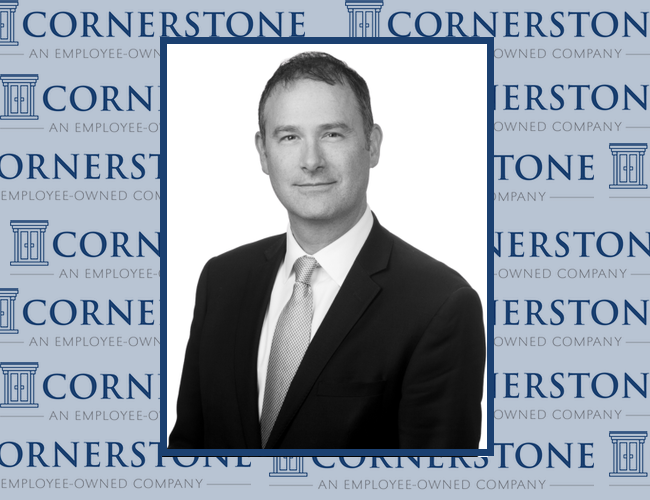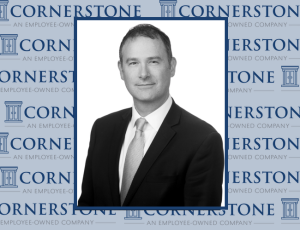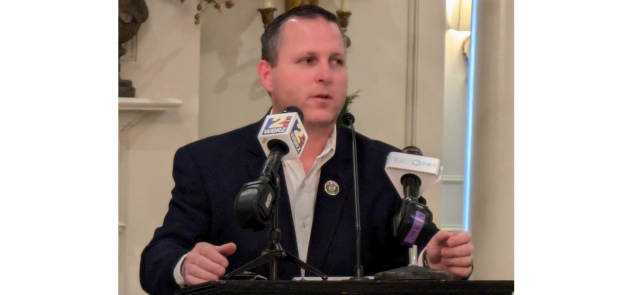Stay ahead of the curve as a political insider with deep policy analysis, daily briefings and policy-shaping tools.
Request a DemoGuest Column: Hurricane prep means taking GOMESA further

As we just saw with Hurricane Beryl making landfall in Texas, Gulf Coast states must be in a constant state of preparation and planning to protect our people and their livelihoods from the next storm.
Congress and the administration in recent years have wisely started to invest in resiliency efforts to lessen the impact of severe weather and reduce the costs of recovery, but one area where that sensible policy could go further is with the GOMESA revenue sharing program.
The Gulf of Mexico Energy Security Act of 2006 (GOMESA) established a mechanism for offshore oil and gas lease and production revenue to be shared with the Gulf producing states of Texas, Louisiana, Mississippi and Alabama. The federal government returns 37.5 percent of the revenue generated offshore — but only up to a cap of $375 million total — to those states for a variety of uses including coastal conservation, restoration and hurricane protection.
Despite millions of dollars coming to the Gulf States each year, the fact of the matter is that the federal government is shortchanging this region. Under current law, offshore oil and gas development is not treated equally to the same activity conducted in the interior parts of the country. If this same energy development activity takes place on onshore federal lands, the surrounding state and communities receive 50 percent of all revenues generated.

Coastal leaders have been working for years to bring more fairness to the situation. The bipartisan RISEE Act, championed by Sens. Bill Cassidy and John Kennedy, would remove that cap on Gulf revenue sharing and add revenue sharing for offshore wind production nationwide.
In the House, Congressmen Steve Scalise and Troy Carter have pushed the BREEZE Act, which not only removes the cap for Gulf revenue sharing but also brings the percentage of revenue sharing up to 50 percent, on par with onshore production. My Mississippi House and Senate delegation members have been beating this drum for years too because of the resources it could bring to our state and communities.
Not only does the current situation treat Gulf States differently from other states, but it is withholding vital resources from the states most at risk of hurricane and tropical storm damage. Those communities need this crucial revenue to better protect their citizens against the next storm and create a more resilient coastal environment.
As we enter what is supposed to be an above average hurricane season, let’s hope Congress can treat this region and its people fairly and give them the resources they need to protect themselves.
Manning McPhillips Jr. is a principal with Cornerstone Government Affairs who leads federal and state advocacy efforts for clients from the firm’s Jackson, Mississippi, office
Know the most important news affecting Louisiana
Get our free weekly newsletter that covers government, policy and politics that impact your everyday life—in 5 minutes or less.
Guest Column: As term comes to an end, Congressman Graves is ‘running through the tape’
Diners, dives and … democracy. As a creature of habit, I frequently return to south Louisiana diners every time the U.S. House is not in session – unannounced and unscheduled – to get real-time, unvarnished perspectives from everyday folks. Constantly engaging folks where they are has proven more valuable than expensive polling and high-priced consultants, …
Our History: The death of Huey Long
When Gov. Jeff Landry opened this year’s redistricting-focused special session, he jokingly referenced the shooting of one of his predecessors. “Now I am aware Huey Long was shot over redistricting,” Landry said. “I am hopeful and confident we can dispose of this matter without you disposing of me.” On Sept. 8, 1935 Long, then a …
In Case You Missed it in LaPolitics Weekly
Here’s what you may have missed in the latest issue of LaPolitics Weekly, published last week… —PSC RACE HEATS UP: The race to succeed Republican Craig Greene, who chose not to stand for reelection, has been fairly quiet so far. But that’s about to change… —NEW CITY STILL A WORK IN PROGRESS: The founding of …
Headlines and Bylines (10.01.24)
—Illuminator: Landry boosts Medicaid payments to seven hospitals, four owned by donor, despite warning of health cuts —BRProud: FEMA money available for people in Louisiana after Hurricane Francine —The Advocate: Near Tiger Stadium, there’s a plan to dig into Louisiana’s energy future. Not everyone is a fan. —The Advocate: How the legal fallout from two …


